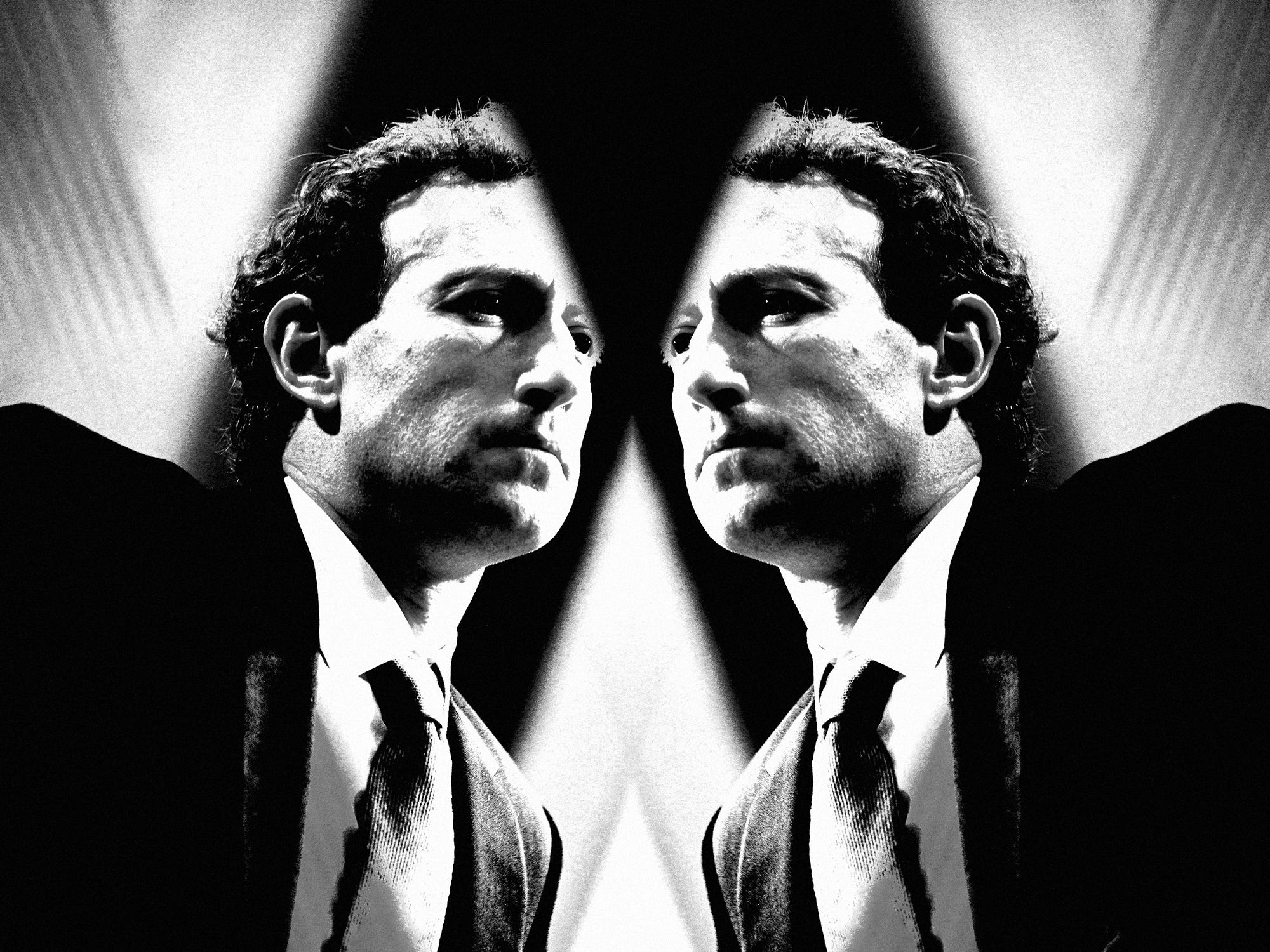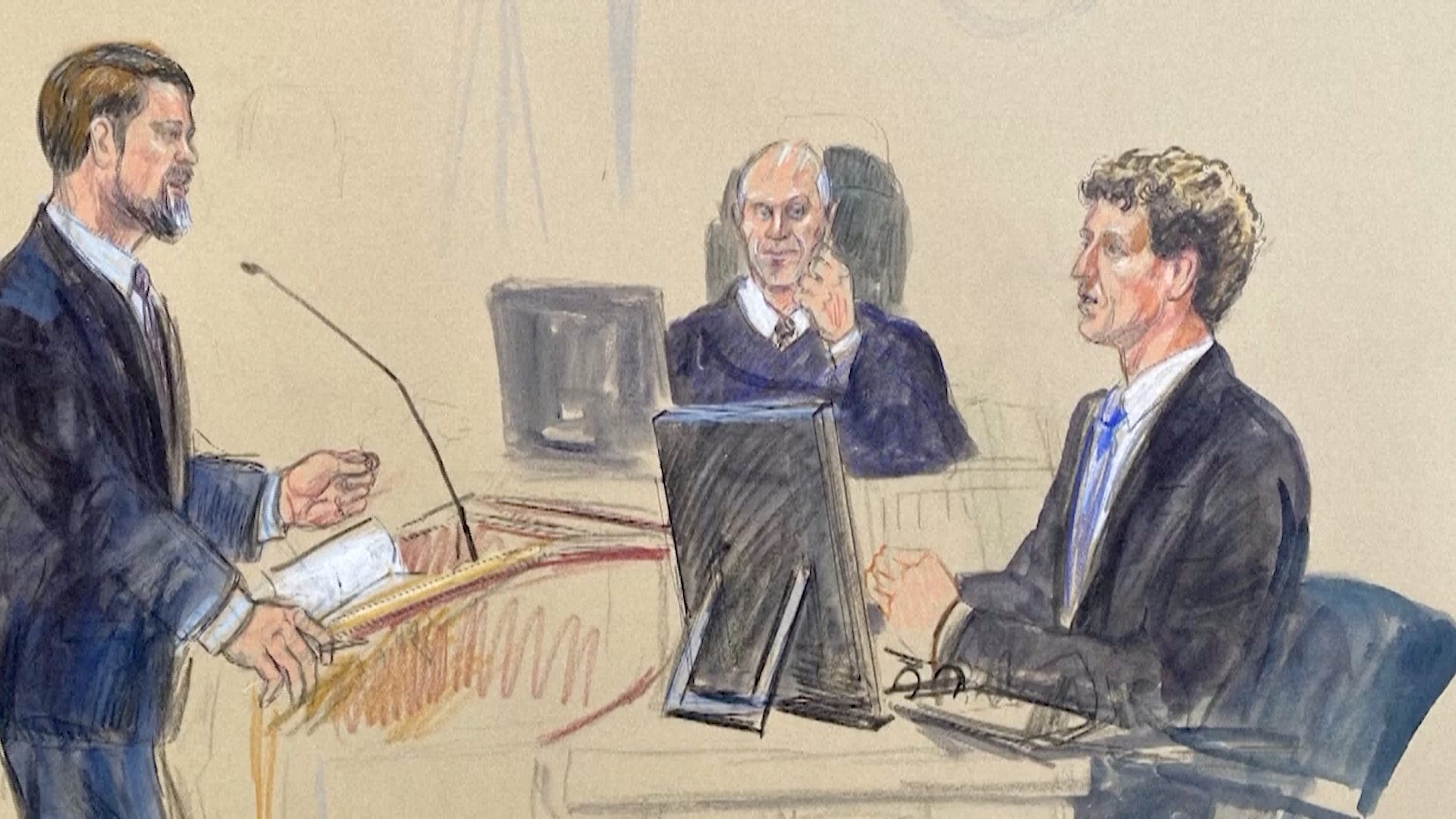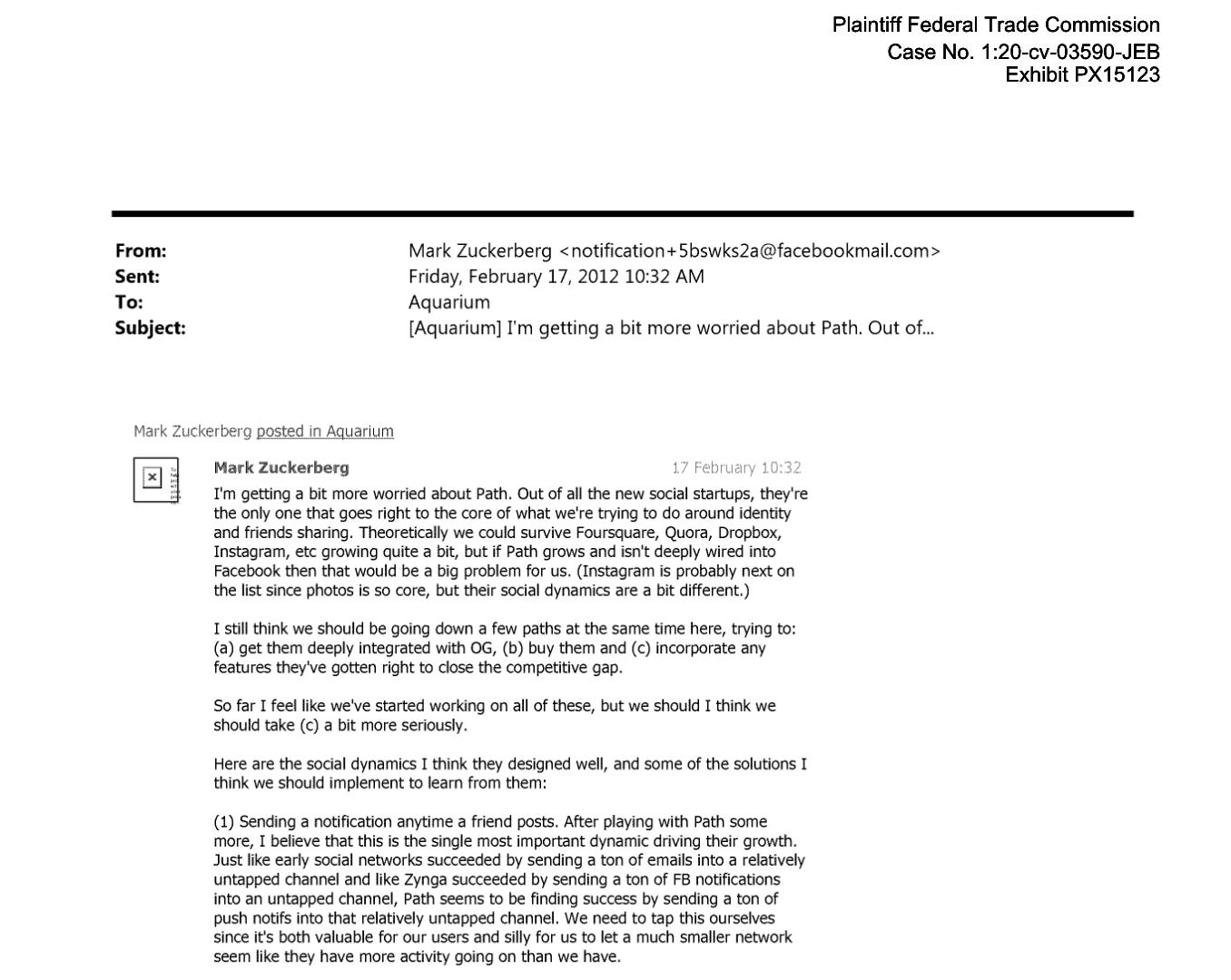
Brendan Smialowski/AFP via Getty Images; Rebecca Zisser/BI
Mark Zuckerberg’s own emails, some of them more than 10 years old, revealed he had antitrust concerns long before the FTC brought its case against Meta.
During 10 hours of testimony, a lawyer for the Federal Trade Commission grilled the Meta CEO over his old emails.
Zuckerberg’s messages reveal near-nonstop concern about nascent rivals, blunt descriptions of some of Facebook’s most pivotal deals.
“While we believe our current trajectory will yield strong business growth over the next 5 years, I worry it will also undermine our global network, erode our corporate brand, impose an increasingly large strategy tax on all of our work, and then over time we may face antitrust regulation requiring us to spin out other apps anyway,” Zuckerberg wrote in a 2018 email to top Facebook executives.
Daniel Matheson, the FTC’s lead lawyer, highlighted another portion of Zuckerberg’s prescient warning about his company’s future.
“While most companies resist breakups, the corporate history is that most companies actually perform better after they’ve been split up,” Zuckerberg wrote. “The synergies are usually less than people think and the strategy tax is usually greater than people think.”
When Matheson asked the billionaire to explain his thinking, Zuckerberg appeared flummoxed.
“I’m not sure exactly what I had in mind then,” Zuckerberg said in response to Matheson’s question about what corporate history he had in mind in 2018.
The trial, which began Monday and is expected to last up to eight weeks, had a high-profile start, with Zuckerberg and Sheryl Sandberg as the prosecution’s first witnesses.
Matheson and his lawyers repeatedly turned to a 2012 message Zuckerberg sent Sandberg in which he bluntly summed up the need to acquire Instagram. In the same thread, he offered to teach Sandberg how to play Settlers of Catan.
“Messenger isn’t beating WhatsApp,” Zuckberg wrote. “Instagram was growing so much faster than us that we had to buy them for $1 billion and Groups and Places, although smaller efforts, have made only a little progress. That’s not exactly killing it.”
Facebook acquired WhatsApp roughly two years later for $19 billion.
If the FTC wins the case, the government could ask Meta to sell Instagram and WhatsApp. Legal experts say the government faces a high bar in proving that Meta “cemented” its monopoly with its acquisitions of the two companies since the FTC already OKed those mergers years ago.
(In October 2012, Facebook officially rebranded as Meta.)

REUTERS / DANA VERKOUTEREN
The many worries of Mark Zuckerberg
Meta has sought to downplay Zuckerberg’s messages. Mark Hansen, the company’s lead lawyer, said that Facebook’s cofounder had to be worried — it came with the job.
“Was it a constant joke at Meta that you were worrying and the sky was falling?” Hansen asked Zuckerberg.
Zuckerberg replied that if it is a joke, “It’s probably behind my back,” but stressed that worry is a cornerstone of Silicon Valley.
Hansen also said that while the government had numerous examples of Zuckerberg expressing fear about Instagram and WhatsApp’s rise, there were also worries about defunct social networks like Path. In one email, Zuckerberg expressed worry that Dropbox could eventually become a competitor — that, too, never came to fruition.
“I’m getting a bit more worried about Path,” Zuckerberg wrote in 2012 to top executives in a thread named “Aquarium,” the tongue-in-cheek name for one of the social network’s real-life conference rooms at its Menlo Park HQ.
“Out of all the new social startups, they’re the only one that goes right to the core of what we’re trying to do around identity and friend sharing.”

FTC/Business Insider
Zuckerberg’s old worries are more relevant when they concern Instagram and WhatsApp. The FTC contends that Facebook gobbled up the companies because it worried that, with a large user base, either one could eventually pivot to become more like Facebook.
“If Instagram continues to kick ass on mobile or if Google buys them, then over the next few years they could easily add pieces of their service that copy what we’re doing now, and if they have a growing number of people’s photos then that’s a real issue for us,” Zuckerberg wrote in a 2011 email.
Sometimes it’s not about being Liked.
As for WhatsApp, the government showed multiple messages where Zuckerberg expressed concern about the messaging app that rose to popularity outside the US — and one where he seemed unmoved by its leadership.
“I found him fairly impressive although disappointingly (or maybe positive for us) unambitious,” Zuckerberg wrote in 2012 to colleagues after he met Jan Koum, the cofounder of WhatsApp.
The Meta CEO seemed taken aback when Hansen asked Zuckerberg about the email. Zuckerberg said the point of his message was that he had learned Koum did not want to pivot or monetize WhatsApp in a way that would truly unnerve Facebook.
In contrast, the FTC showed multiple messages in which Zuckerberg expressed frustration with Facebook’s efforts to develop a competing camera app as Instagram skyrocketed in popularity.
“What is going in with our photos team?” Zuckerberg wrote in a 2011 message that was partially redacted when it was presented in court. “Between [redacted] leaving and [redacted] being checked out/a bad manager as well as [redacted] also being checked out and [redacted] not wanting to work with this team because he thinks this team sucks. It seems like we have a really critical situation to fix here.”
The post Zuckerberg’s old emails reveal the CEO’s rivals lived in his head rent-free appeared first on Business Insider.



















